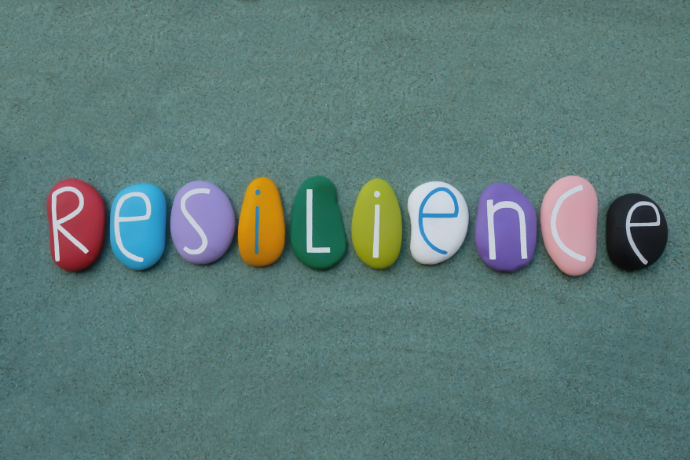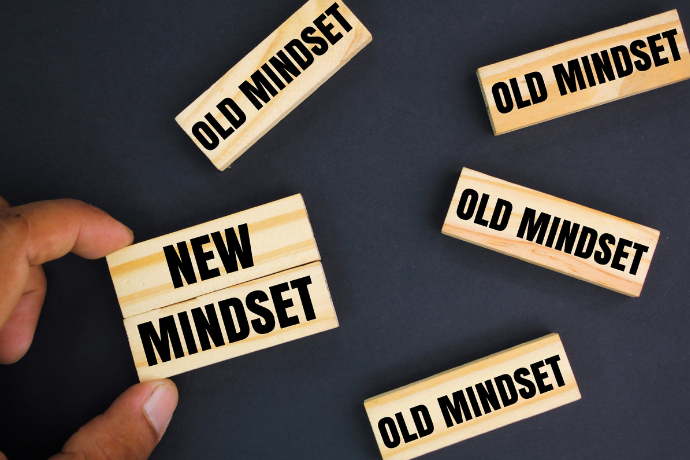 SPEAKERS
SPEAKERS
 TOPICS
TOPICS
Learn effective strategies to nurture resilience and fortitude, conquering life's obstacles and fostering personal growth.

Do you often find yourself overwhelmed with some situations in your life? Do your problems and challenges feel constantly too big to handle, and do they become an obstacle for your goals and ambitions?
The answers to these questions mostly depend on your mental toughness and resilience. A resilient mindset can make it easier to overcome challenges and help change your whole life for the better, personally, socially and even physically. Fortunately, anyone can build mental toughness and resilience. Here are some efficient strategies for building a resilient mindset.

Resilience or mental toughness refers to the ability of a person to adapt to tough situations, bounce back, and achieve or surpass their intended objectives. People with a resilient mindset do not emphasize their failures but instead use them as learning experiences. They view problems as challenges worth overcoming, not as barriers and obstacles. In addition, they are fully committed to their objectives and spend most of their time and energy trying to optimize their personal control.
Thomas Edison is a good example of mental resilience, since he failed thousands of times before inventing the incandescent light bulb. He also went on to file over a thousand successful patents, contributing to inventions such as the motion picture and the telegraph.
Anyone can improve mental toughness with the right approach and enough practice.Here is seven efficient strategies for getting a resilient mindset:
Being competent means being good at what you do.Being good at what you do means that you have the necessary skills and knowledge to always be prepared for unexpected setbacks.Competence also goes a long way toward improving your overall workplace wellbeing.
Self-confidence is a sense of empowerment and trust in your abilities in challenging situations. It does not mean that you are never scared or unsure of your abilities. Instead, it means that you can overcome these feelings when they come and use your knowledge, skills, and experience to turn things around. You can use various techniques to build your self-confidence, such as visualization, learning problem-solving skills, and setting realistic short-term goals.
People are social beings and often need help and support from other people to succeed. For a resilient mindset, good relationships with other people serve as a crucial support system. For example, you can benefit from strong relationships at your workplace to avoid liabilities and advance and achieve your professional goals. Plus, you can turn your strong social and personal relationships into an advantage to help you deal with things like stress and lack of confidence.
But, sometimes relationships can be delicate and dynamic, and some can hurt more than they can help. So it is important to build relationships with people who share your interests and whom you can trust.
Certain problems can challenge your deeply held beliefs and overall personality. Unfortunately, they can develop into huge obstacles if you are not ready to go out of your comfort zone, embrace the unknown, and grow as a person. To this end, the importance of personal growth for growth mindset resilience cannot be emphasized enough.
Interestingly, personal development helps with stress management, one of the important requirements for a resilient mindset and mental toughness. It also improves your overall self-confidence as you learn and experience new things. So personal growth is an important point for overcoming challenges in life, making you happier and more at ease over time.
Stress is one of the biggest barriers to a resilient and tough mindset.It can cause fear and doubt and that may make you lose your self-confidence and perspective. To this end, learning how to manage stress and other negative emotions is one of the key pillars of mental toughness. It is also one of the secrets to a happier and more productive life.
Learning how to manage stress and mastering general emotional resilience takes time and a lot of practice. Fortunately, there are many simple and effective coping strategies, such as meditation, breathing exercises, and yoga. Therapy can also help get to the root of the more complex causes of stress and other emotions.
Stress and other negative (and even positive) emotions can get in the way of your perspective and objectives. While it is important to acknowledge your emotions, you should not lose your perspective when dealing with them. Writing down your situation’s positive and negative aspects is the best and simplest way to maintain a balanced view of your perspective and objectives.
Many philosophers argue that discovering one’s true purpose in life is the main goal of existence. While that is debatable, discovering yourself and your true purpose is important to building a touch and resilient mindset.
However, it can feel like an obscure undertaking, and many people do not know where to start. Discovering your true purpose is easier said than done, and you may need to search far and wide. Aligning your goals with your passions, working towards achieving them, and overcoming challenges that get in your way is a good place to start.

Anyone can build a tough and resistant mindset. But of course it is easier said than done, and the process takes a lot of time and practice. If you do not know where to start, you can use these seven beneficial strategies.
You can start by knowing your true purpose and embracing personal growth, as they are the most effective strategies for building mental resilience. Managing stress and strengthening your self-confidence are also effective strategies for emotional resilience.
By the way, it is worth noting that the process of building a resilient mindset goes beyond the seven strategies recommended here. It requires a holistic approach to your whole mental and physical being based on your personality and other unique characteristics of yourself.
